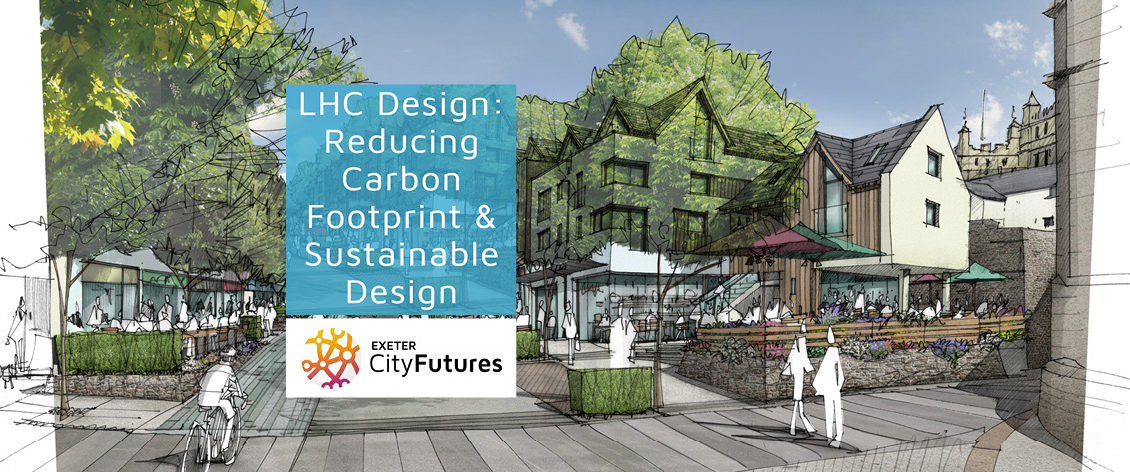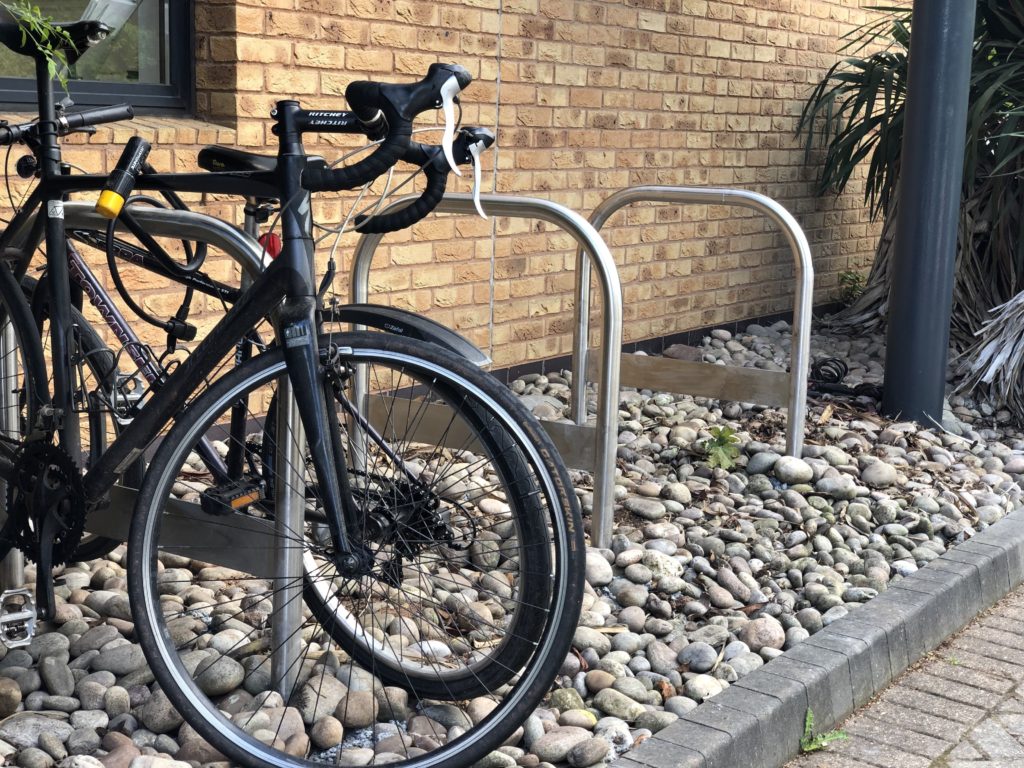Recently we had the opportunity to contribute a case study to the Exeter City Futures website.
Click here to visit their site, read our case study and explore how they are working collaboratively with Exeter City Council to become carbon neutral by 2030… or read our case study below.
LHC Design Sustainability & Environmental Working Group with a focus on reducing our business’s carbon footprint and ensuring our design projects respond positively to climate change, incorporate best practice sustainable development principles and reduce energy-use both in construction and for the end user.
The focus of LHC Design’s annual away day in the summer of 2019 was how we should respond to the Climate Emergency, and a key outcome of the day was the formation of our Sustainability & Environmental Working Group which is formed from representatives from all our teams at all levels of the business; with the purpose of developing our Climate Emergency Strategy and reducing our carbon footprint, and ensuring we embody a positive response to climate change, sustainable development principles and reduced energy use/carbon emissions into our design projects.
Following the workshop we identified some ‘Quick Wins’ and took the following immediate actions:
- We became signatories of the RIBA and Landscape Institute Climate Emergency Statements
- We switched our Exeter studio to a 100% renewable supplier who reinvest in new renewables
- LED lighting installed in Exeter and Plymouth
- Single server with fixed line to aid inter-office working
- Additional Cycle Hoops installed in Exeter (supported by Active Devon)
- Toilets and Shower room refurbished with more efficient hand dryers
- Agreed to prioritise sustainable transport modes and public transport for travel to meetings where possible/practical and amended expenses system to include work mileage for cycling to meetings
- We achieved 1st place in Devon for Cycle September (20-49 category) with 35% participation
- Investing in video conferencing facilities in both studios to reduce the need for travel to internal and external meetings
The working group is now focusing on identifying medium and longer term are develop specific responses to the following areas:
Office Culture & Business Operation
- Understand our carbon footprint and prioritise actions
- Our initial review indicated that the majority of our carbon footprint is generated by transportation. (commuting and business travel accounting for 80-90% of our energy use). We are investigating options and targets for reducing travel and prioritising sustainable modes of transport (e.g. flexible working, homeworking, car sharing – with clients and other consultants as well as internally – video conferencing, incentives for cycle use…)
- Reduce waste and ensure we reuse and recycle waste materials effectively
- Review our supply chain to ensure we are sourcing our supplies locally, ethically and sustainably where possible
- Reduce wasted energy (turning off lights and equipment when not in use, ensuring new equipment is energy efficient)
- Understanding the potential efficiency, health and wellbeing benefits of reducing our carbon footprint (e.g. including exercise in daily routines through use of active transport modes)
- Considering how our charity fundraising and other activities can support carbon reduction
Project Design & Delivery
- Share our existing best practice internally and with our clients and partners to demonstrate best practice and normalise sustainable, energy efficient design
- Work with our partners and clients to ensure our designs are fully integrated into their context, respond to climate change, deliver effective green infrastructure networks and maximise potential reductions in embodied energy and operational energy use
- Strengthen our Design and Technical Review procedures to ensure we fully consider climate change, sustainable design and carbon reduction
- Review our training plan to ensure we identify key areas for training and appropriate CPD and courses
- Identify best practice precedents and review/visit these as part of our CPD programme
- Be active participants in the RIBA 2030 Climate Challenge and the Landscape Institute Climate Response
LHC Design is a small multidisciplinary design consultancy. From our offices in Exeter and Plymouth we work across a range of development sectors, including residential, commercial, retail and education.


